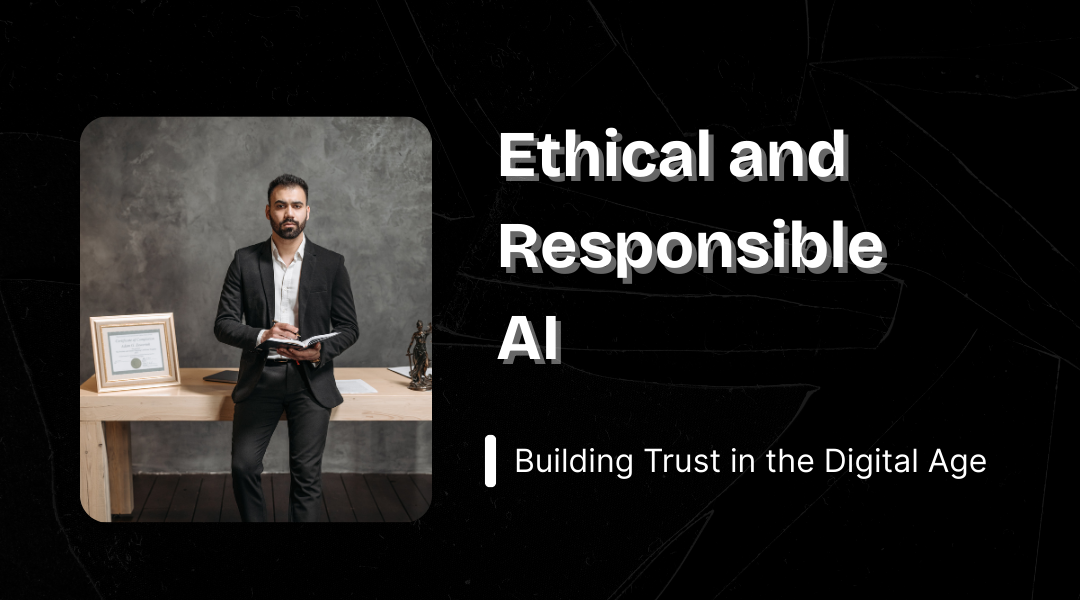Artificial Intelligence is no longer a futuristic concept—it’s woven into our daily lives, influencing everything from social media feeds to credit scoring. But as AI’s role expands, so does the need for ethical guidelines and responsible usage. This section dives into the core principles of ethical AI, covering data protection, fairness, and accountability. We’ll look at real-world cases—both successes and failures—to understand how businesses can adopt AI responsibly, ensuring trust and minimizing harm. Whether you’re a developer, executive, or tech enthusiast, understanding ethical AI is crucial in today’s digital landscape.
1. Protecting Data Privacy in an AI-Driven World
With AI handling vast amounts of personal data, privacy and security concerns are at an all-time high. Regulations like the EU’s GDPR set strict standards for data protection, requiring measures such as:
- Encryption – Scrambling data so only authorized users can read it.
- Anonymization – Removing personally identifiable details from datasets.
Real-World Examples of Secure AI Practices
- Apple’s Differential Privacy – Instead of tracking individual user behavior, Apple adds “noise” to data, allowing personalized features without compromising privacy.
- IBM Watson Health – Follows HIPAA compliance, using advanced encryption to protect patient records while still enabling AI-driven medical insights.
- JPMorgan Chase – Uses AI for fraud detection but enforces strict GDPR compliance to keep financial data secure.
Lessons from Major Data Breaches
A. The Equifax Hack (2017)
- Impact: 147 million people’s data exposed.
- Cause: Unpatched software vulnerability.
- Consequences: Over $700 million in fines and a massive loss of consumer trust.
- Key Takeaway: Proactive security updates and compliance with CCPA/GDPR are non-negotiable.
B. Marriott’s Starwood Breach (2018)
- Impact: 500 million guests’ passport and credit card details stolen.
- Cause: Weak security in an inherited database system.
- Aftermath: Marriott upgraded cybersecurity and tightened GDPR adherence.
- Lesson: Mergers and acquisitions require thorough data security audits.
2. Why Ethical AI is a Competitive Advantage
Ethical AI isn’t just about avoiding fines—it’s a business differentiator. Consumers today prefer companies that prioritize:
- Transparency – Clear explanations of how AI makes decisions.
- Fairness – Eliminating biases in algorithms.
- Accountability – Taking responsibility when AI systems fail.
How Startups Can Lead the Way
Smaller companies have an edge—they can embed ethics into AI from day one. For example:
- A healthtech startup using AI for diagnostics ensures racial and gender bias is removed from training data.
- A fintech firm deploying AI for loan approvals maintains audit logs to explain decisions.
Result? Stronger customer trust and long-term loyalty.
3. Collaboration: The Key to Responsible AI
Building ethical AI isn’t a one-person job—it requires teamwork:
- Developers must design AI with fairness and transparency in mind.
- Businesses need policies and training to enforce ethical standards.
- Consumers should stay informed and demand accountability.
The Business Case for Ethical AI
A Deloitte report found that companies focusing on ethical AI are:
- 30% more successful in AI adoption.
- More trusted by customers and employees.
When all stakeholders work together, AI becomes a force for good—driving innovation while protecting user rights.
4. The Future: Ethical AI for Sustainable Growth
Responsible AI isn’t just about avoiding lawsuits—it’s about long-term success. Companies that prioritize ethics will:
- Build stronger brand reputations.
- Gain customer and investor confidence.
- Contribute to a fairer digital economy.
Final Thought
AI has incredible potential, but only if we use it responsibly. By focusing on privacy, fairness, and collaboration, we can ensure AI benefits everyone—not just corporations.
